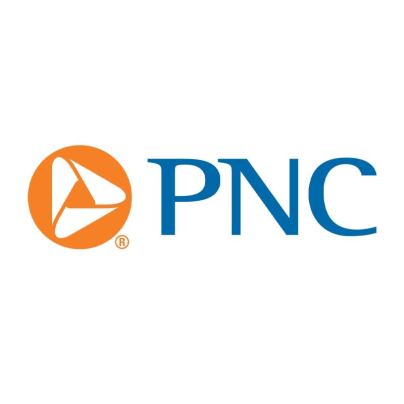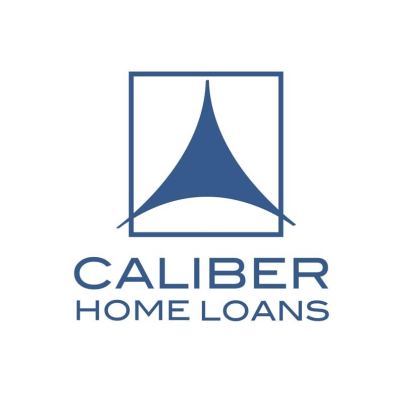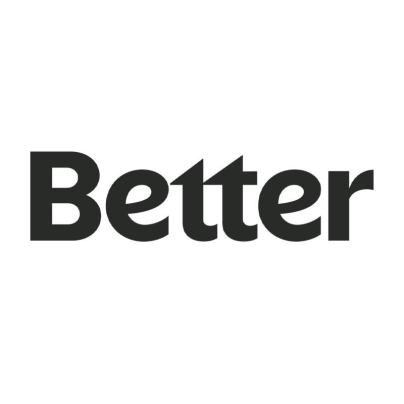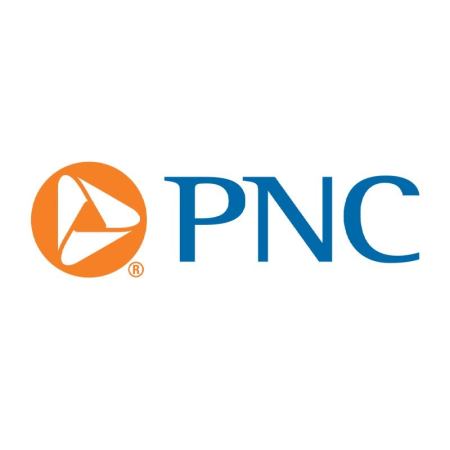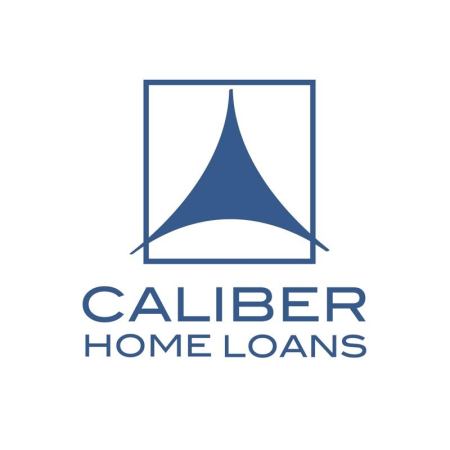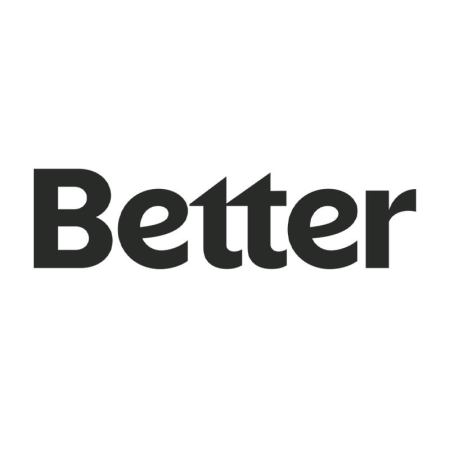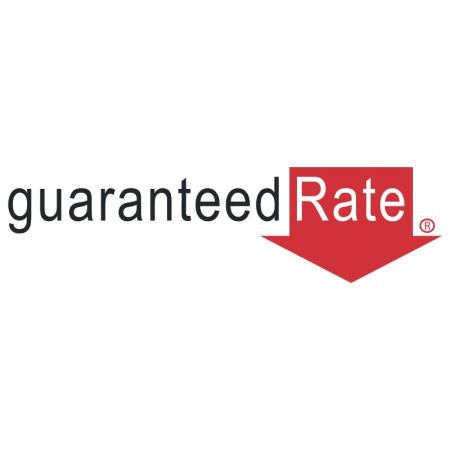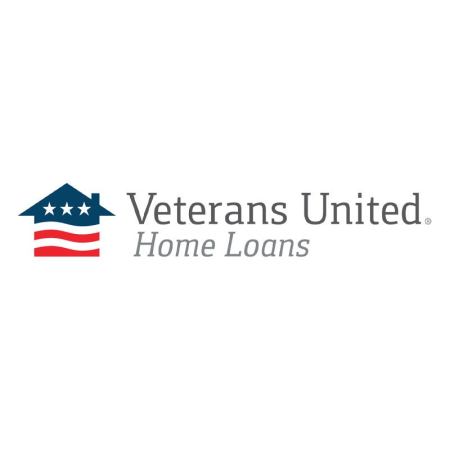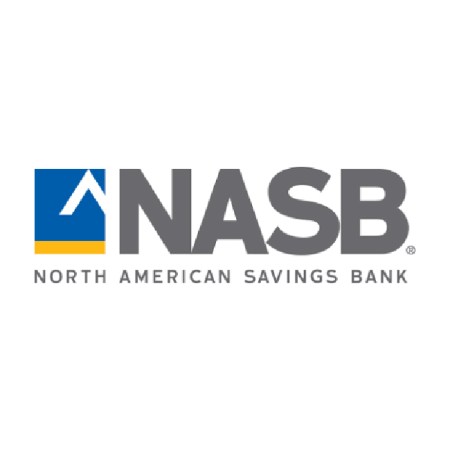
We may earn revenue from the products available on this page and participate in affiliate programs. Learn More ›
Mortgages are long-term commitments, but that doesn’t mean that homeowners are completely locked into the terms of their original loan agreement. Borrowers have the option to refinance their mortgage—either with their original lender or with a different mortgage company—to take advantage of different loan terms. Refinancing a mortgage essentially replaces the original loan with a new one that has different interest rate or loan length, or is even a different mortgage type. Although there’s a cost to refinancing a mortgage, the long-term savings from a reduced interest rate or fewer monthly payments could be worth the expense for many homeowners.
Lenders can offer a wide variety of loan terms, whether a borrower is looking to refinance or take out a loan on a new house, so it’s worth checking out what options are available and shopping around for the best possible mortgage rates. The best mortgage refinance companies have a lot to offer homeowners, but finding the right fit will depend on a borrower’s specific circumstances.
- BEST OVERALL: PNC
- RUNNER-UP: Caliber Home Loans
- BEST FOR LOW FEES: Better
- BEST ONLINE EXPERIENCE: Rocket Mortgage
- BEST APPLICATION PROCESS: Guaranteed Rate
- BEST FOR VA LOANS: Veterans United
- ALSO CONSIDER: North American Savings Bank

What to Consider When Choosing One of the Best Mortgage Refinance Companies
Homeowners may approach a refinance with a particular goal in mind—lowering their monthly payment, for example—but it’s important to consider the full impact that a refinance will have on their mortgage. With that in mind, there are several factors that borrowers may want to weigh when deciding on the best mortgage refinance company for their needs.
Eligibility Requirements
Qualifying for the best loan terms—or a home loan at all—requires homeowners to meet certain eligibility requirements. This criteria may include credit scores, debt-to-income (DTI) ratios, income streams, and other factors related to a borrower’s personal finances. When assessing borrowers’ qualifications for a refinance, lenders largely want to gauge how likely they are to repay their mortgage with the new loan terms. Homeowners who present less risk of nonpayment or default are more likely to receive favorable terms such as a lower interest rate or annual percentage rate (APR).
Even so, eligibility standards can vary from lender to lender, and borrowers may qualify for a better rate or a longer loan term with some mortgage companies but not others. It may be worth homeowners checking rates and terms with a few different refinance mortgage brokers and lenders to find the best rate and terms.
Loan Types
Homeowners may want to switch loan types at some point during the life of their mortgage. For instance, a borrower who originally selected an adjustable rate mortgage (ARM) for the relatively low initial interest rate may prefer the consistency of a fixed-rate mortgage once the ARM’s adjustable period begins. In addition, first-time home buyers may find the more lenient eligibility requirements of an FHA loan appealing, but they may want to refinance to a different loan type to remove their mortgage insurance premium after they have built additional home equity.
When looking over the best mortgage refinance companies, borrowers will want to check which lenders offer the specific type of loan they’re looking for—that’s particularly true for anyone interested in more specialized refinancing options such as a cash-out refinance.
Loan Terms
Mortgage companies typically offer a selection of different loan terms for borrowers to choose from for each of their loan products—fixed-rate mortgages, for instance, are typically available as 15-year or 30-year loans, with some lenders providing even more loan terms to consider. Such variety allows borrowers to select a loan term that balances affordable monthly payments with a manageable repayment schedule. In fact, adjusting the length of a mortgage is one of the most common reasons for homeowners to refinance.
It’s a good idea for borrowers to keep in mind that some loan terms may be harder to qualify for than others. When mortgage rates are high, for instance, borrowers may not be eligible for longer loan terms like 30-year fixed-rate conventional mortgages. A lender’s mortgage refinance calculator may provide some insight into what loan terms are available given a borrower’s particular financial circumstances. Getting prequalified for a refinance may provide a more precise assessment, however, and this can be very useful when comparing rates and loan options.
Mortgage Rate
The mortgage rate on a home loan determines how much interest the borrower will pay over the entire life of the loan. That, in turn, impacts the size of a borrower’s monthly mortgage payment as well as the total cost of financing. Many people refinance their mortgage with the goal to lower their interest payment and bring those expenses down, but that option may not always be available. Mortgage rates are dependent on a number of economic factors, such as security bond trading trends, which borrowers will have no way to influence. However, a homeowner’s own financial situation will also affect the interest rate offered by a lender, including their credit history and how much equity they already have in their home.
Mortgage rates can also vary across lenders, so homeowners may qualify for a lower interest rate with one mortgage company compared to another. Shopping around for the best rate may require multiple credit checks, but it could be worth any short-term impact on a borrower’s credit score to find the lowest mortgage rate available. Homeowners may be able to narrow down their search by consulting the best mortgage refinance companies reviews to see which lenders stand out from the competition.
Annual Percentage Rate
The annual percentage rate—or APR—is a more precise indicator of the total cost of a home loan compared with the mortgage rate. Mortgage rates only account for the interest that will be owed on the loan, but the APR factors in other expenses that a borrower will pay over the life of the loan. Those expenses could include closing costs such as origination, recording, or appraisal fees. The APR also accounts for private mortgage insurance attached to the home loan, which will raise a homeowner’s monthly payment.
Homeowners who want a more accurate idea of the total cost to refinance will want to look at the mortgage’s APR, especially if they would pay additional fees with their new loan. An FHA loan may offer a lower interest rate than a conventional fixed-rate mortgage with the same loan terms, for instance, but its APR could be higher due to the mortgage insurance that can never be removed. Because fees and other costs can vary from lender to lender, APR is a good way to compare the affordability of each mortgage company’s offerings.
Average Closing Costs
Refinancing a mortgage comes at a cost. In addition to potential application and appraisal fees, borrowers will likely be required to pay closing costs before their refinance can be finalized. Closing costs can vary quite a bit across lenders, as mortgage companies may charge different origination fees, title search fees, registration fees, and other expenses due at closing. In some cases, borrowers may be able to finance their closing costs, building them into their monthly payments so they repay any additional lender fees throughout the life of the new loan. If homeowners are not able to finance their closing costs, however, then this could be a large out-of-pocket expense that will be due when the new loan is originated and may impact their choice of mortgage refinance company.
Prequalification Process
Preapproval isn’t an entirely necessary step in the refinance process because, without a home purchase transaction, there’s little incentive for borrowers to obtain an approval letter. Prequalification may be another matter, though. A mortgage prequalification can give homeowners a sense of what loan terms they might receive with a refinance. As such, getting prequalified can be very helpful when checking loan eligibility and comparing rates and loan terms offered by different mortgage companies.
The best mortgage lenders may approach prequalification from different angles, potentially allowing borrowers to apply for prequalification online, over the phone, or directly through a loan officer. A more convenient prequalification process may make it easier to shop around for loan terms and get a sense of what a borrower may qualify for when refinancing a mortgage. As such, some borrowers may want to seek out a lender that offers online prequalification and can quickly respond to a submission with expected loan terms.
Application Process
Although borrowers looking to refinance their mortgage may not be under the same time crunch as someone looking to buy a new house, they’ll likely still want a fairly speedy application process. Short application and approval timelines often reflect an experienced and effective underwriting team that is capable of quickly reviewing borrower information and confirming financial details. This can limit the amount of back and forth that borrowers need to go through with their loan officers during the application process. Borrowers may also be able to avoid headaches like resubmitting bank statements, tax returns, and other financial documents if the original records were improperly documented or uploaded. Many lenders support an entirely online application workflow, but some homeowners may feel more comfortable sitting down with a loan officer and talking through the best refinance options before submitting a refinance application.
Mortgage Points
When taking out a new mortgage, borrowers have an opportunity to lower their interest rate by purchasing mortgage points. Each mortgage point purchased will typically reduce the mortgage rate by a fraction of a percentage point. Although the cost of mortgage points can vary, borrowers are often required to pay 1 percent of their total loan amount to purchase a single mortgage point. Despite the significant up-front cost, buying down the rate with mortgage points may be worth the initial investment to get a reduced interest rate and save money on both a mortgage’s monthly payments and the total amount of interest owed.
Not all lenders offer mortgage points, and those that do may cap the number of points that a borrower can purchase. In addition, the exact cost of mortgage points and the rate discount they provide may vary from lender to lender. If homeowners plan to buy down the rate, they will want to check how each company handles mortgage points.
Our Top Picks
Homeowners may equate the best mortgage refinance companies with the lenders that can offer the lowest rate. Although cost is a major consideration, it’s important to look at the entire breadth of services, terms, and benefits that each company can offer.
Best Overall
PNC
- Loan types: Fixed rate, ARM, FHA, VA, USDA, jumbo
- Loan terms: 10, 15, 20, or 30 years on fixed-rate loans; 7 or 10 years on ARMs
- Average closing costs: 3.5 percent of loan amount
- Prequalification process: Phone, agent
- Application process: Online, phone, agent
- NMLS Unique Identifier: 446303
Pros
- Relatively low mortgage rates and APR
- Varied fixed-rate loan terms from 10 to 30 years
- USDA loans supported
- HELOC financing available
Cons
- Limited cash-out refinance options
Why It Made the Cut: Eligible borrowers may qualify for low interest rates when refinancing with PNC. The lender also offers a range of term options on fixed-rate loans, as well as USDA loans and home equity line of credit (HELOC) financing. PNC could be a very appealing option for homeowners looking to lower their interest rate and APR, as the lender may offer mortgage rates that are on the lower end for 30-year fixed-rate loans. Qualifying for a lower interest rate could help borrowers reduce their monthly payments as well as the total amount of interest they will pay on their home loan. There are also a variety of fixed-rate loan terms to choose from, including 10-, 15-, 20-, and 30-year mortgages, which can make it easier for homeowners to find the right option to suit their needs. Although cash-out refinance options are limited, eligible homeowners can take advantage of other refinancing opportunities. For instance, PNC offers USDA loans that can help borrowers in rural areas save money on their mortgage with lower interest rates. Borrowers may also be interested in PNC’s HELOC options, which can be used to turn accumulated home equity into a revolving line of credit to pay for a wide variety of purchases and expenses.
Runner-Up
Caliber Home Loans
- Loan types: Fixed rate, ARM, VA, FHA, USDA, jumbo, interest only
- Loan terms: 10 to 30 years on fixed-rate loans; 3, 5, 7, or 10 years on ARMs
- Average closing costs: Unknown
- Prequalification process: Phone, agent
- Application process: Online, phone, agent
- NMLS Unique Identifier: 15622
Pros
- USDA loans supported
- Varied ARM loan terms from 3 to 10 years
- Flexible refinancing options for self-employed borrowers
- Refinance possible in as little as 10 days
Cons
- Unknown average closing costs
Why It Made the Cut: With a wide variety of financing options and loan terms, as well as a speedy turnaround time on refinances, Caliber Home Loans may be a good choice for many borrowers. Homeowners interested in different types of loan terms and financing options may find the right lender with Caliber Home Loans. The company offers several loan terms to choose from on an adjustable rate mortgage (ARM)—3, 5, 7, or 10 years—which gives borrowers more flexibility when deciding how long they would like the fixed-rate period to last on this type of loan. Eligible homeowners may also qualify for a USDA loan refinance, which is not very common and may save them money on their mortgage while lowering their monthly payments. It’s unclear exactly how much homeowners will pay in closing costs when refinancing their mortgage with Caliber Home Loans, but they may be able to close on their refinance in just 10 days and avoid a protracted application process. In addition, self-employed borrowers may have an easier time qualifying for a refinance with Caliber’s flexible income documentation requirements. The company’s SmartSelf program accepts bank statements as proof of income even if the borrower is unable to present pay stubs or W-2 forms from an employer.
Best for Low Fees
Better
- Loan types: Fixed rate, ARM, FHA, jumbo
- Loan terms: 10, 15, or 30 years on fixed-rate loans; 5, 7, or 10 years on ARMs
- Average closing costs: $1,500 to $3,000
- Prequalification process: Online
- Application process: Online
- NMLS Unique Identifier: 330511
Pros
- Relatively low closing costs
- No lender fees
- 24/7 responsive customer support
Cons
- VA loans unavailable
Why It Made the Cut: Homeowners looking to refinance their mortgage without paying a lot of money out of pocket may be interested in Better’s low closing costs and the lack of any additional lender fees. Better distinguishes itself as a mortgage refinance company by offering borrowers opportunities to refinance without paying a lot of money up front. For instance, Better doesn’t charge any lender fees, including application, origination, or underwriting fees, which can help lower the initial expense to refinance. On average, borrowers can expect to pay between $1,500 and $3,000 in closing costs—a relatively low amount when refinancing a mortgage. These cost savings may encourage more homeowners to consider refinancing their mortgage to take advantage of more favorable terms. Homeowners looking to refinance their conventional mortgage into a VA loan will need to look elsewhere, as Better is not a VA-approved lender. The mortgage company does offer other government-backed loans, though, including FHA loans. In addition, borrowers may feel more at ease working with a lender like Better that has around-the-clock customer support to answer questions or provide assistance whenever needed.
Best Online Experience
Rocket Mortgage
- Loan types: Fixed rate, ARM, VA, FHA, jumbo, cash-out refi
- Loan terms: 15 or 30 years on fixed-rate loans; 7 or 10 years on ARMs
- Average closing costs: 3.3 percent of loan amount
- Prequalification process: Online, phone
- Application process: Online, phone, agent
- NMLS Unique Identifier: 3030
Pros
- Convenient mortgage management with mobile app
- Responsive online chat staffed by live representatives
- Auto, solar panel, and debt consolidation financing available to account holders
Cons
- Limited ARM options
Why It Made the Cut: With its helpful dedicated mobile app and online chat support, Rocket Mortgage may be a solid choice for borrowers interested in a strong digital experience when refinancing their home loan. Rocket Mortgage is a digital-focused lender, giving borrowers plenty of ways to manage their home loan online and with the help of digital platforms. The company’s dedicated mobile app, for example, allows borrowers to check in on their home loan at any time and from any location. They can schedule mortgage payments, retrieve documents such as interest statements, check their repayment timetable, and set up automatic payments whenever they like. If borrowers wish to refinance their mortgage at another date down the road, they can do so entirely within the mobile app. This one-stop-shop approach to loan management makes it easier and more convenient for borrowers to keep track of their mortgage. Rocket also maintains an online chat tool that site visitors and borrowers can use to speak directly to a company representative and ask questions about their refinancing options. This may be quicker than picking up a phone and calling a representative directly. It’s worth noting that Rocket’s ARM terms are somewhat limited, with 7- and 10-year ARMs available, but borrowers may still find those options to be more than sufficient to meet their refinancing needs. Homeowners who sign up for an account with Rocket Mortgage can also apply for other types of financing to help pay for a new car or solar panel installation. Account holders may be able to take out a loan to consolidate existing debt as well. Having more loan options may be appealing to homeowners who prefer the simplicity of working with one lender for all of their financing needs.
Best Application Process
Guaranteed Rate
- Loan types: Fixed rate, ARM, VA, FHA, jumbo, cash-out refi, interest only
- Loan terms: 15 or 30 years on fixed-rate loans; 5, 7, or 10 years on ARMs
- Average closing costs: 3.5 percent of loan amount
- Prequalification process: Online, phone, agent
- Application process: Online, phone, agent, app
- NMLS Unique Identifier: 2611
Pros
- Varied prequalification options
- User-friendly refinance application via mobile app
- Multiple helpful online mortgage calculators
Cons
- 30-year fixed-rate loans may not be available
Why It Made the Cut: Guaranteed Rate presents many ways to help homeowners throughout the refinancing process, including prequalification tools, mortgage calculators, and the ability to refinance through the company’s mobile app. Homeowners will want to approach a mortgage refinance with as much information as possible, and Guaranteed Rate helps borrowers review their financing options with its many online mortgage tools. There are dedicated mortgage calculators to show borrowers the impact of buying mortgage points and making extra payments on their home loan. Borrowers can also use these calculators to anticipate their closing costs as well as any potential savings they may stand to receive if they refinance. Depending on their qualifications, some borrowers may not be eligible for a 30-year fixed-rate mortgage, but Guaranteed Rate’s multiple prequalification options make it easy to check eligibility. Homeowners can apply for prequalification online, over the phone, or with a loan officer in their area. Once they are ready to submit a mortgage application, borrowers can apply for a refinance through the company’s mobile app. They are able to compare interest rates from the different loan options available, as well as check any lender fees they may owe. Borrowers can also see what their monthly payments will look like before submitting a loan application, which can make it easier to confirm the financial benefits of refinancing.
Best for VA Loans
Veterans United
- Loan types: VA loans
- Loan terms: 15 or 30 years on VA loans
- Average closing costs: 3.99 percent of loan amount
- Prequalification process: Online, phone
- Application process: Online, phone
- NMLS Unique Identifier: 1907
Pros
- Specialty in VA loans
- Free credit-building assistance
- 24/7 responsive customer support
Cons
- Refinancing unavailable for non-military members
- Non-VA loans unavailable
Why It Made the Cut: Veterans United may be a great refinancing option for eligible service members looking to take advantage of the lower interest rates that a VA loan can offer. Veterans United is one of the leading mortgage companies offering VA loans. In addition to being a VA-approved lender, Veterans United specializes in this type of financing. In fact, the mortgage company exclusively focuses on VA home loans—other government-backed loans and conventional mortgages are not available—offering a great deal of institutional knowledge around this particular financing option. As such, borrowers may feel more comfortable knowing that the lender has a considerable amount of expertise and experience processing refinances for VA loans. Veterans United also offers refinancing options that are specific to VA loans, including VA cash-out refinances and Interest Rate Reduction Refinance Loans (IRRRL). Due to the focus on VA loans, Veterans United does not offer financing options to non-military members unless they are related to eligible active or retired military members. Service members who may not qualify for favorable loan terms on a refinance can take advantage of the lender’s free credit-building program so they can improve their refinance prospects later down the road. If borrowers have any questions or concerns about their mortgage, they can always reach out to a representative at any time, as Veterans United runs a 24-hour customer support line 7 days a week.
Also Consider
North American Savings Bank
- Loan types: Fixed rate, ARM, FHA, VA, jumbo, cash-out refi
- Loan terms: 15 or 30 years on fixed-rate loans; 3, 5, 7, or 10 years on ARMs
- Average closing costs: 2 to 5 percent of loan amount
- Prequalification process: Phone
- Application process: Online, phone
- NMLS Unique Identifier: 400039
Pros
- Cash-out refinance available up to 95 percent LTV
- Varied ARM loan terms from 3 to 10 years
Cons
- Relatively high mortgage rates and APR
- Average closing costs may be high
Why It Made the Cut: North American Savings Bank (NASB) offers a wide range of ARM terms for borrowers to explore as well as flexible cash-out refinancing options for homeowners who want to tap into their home equity. North American Savings Bank may be a good alternative for homeowners interested in specific types of mortgages and loan options when refinancing their home loan. For instance, NASB offers cash-out refinances to homeowners with loan-to-value (LTV) ratios up to 95 percent, which is high for this type of mortgage. Borrowers who qualify for a cash-out refinance with NASB might be able to tap into more of their home equity as a result. Homeowners may want to be aware that they could pay higher rates to take advantage of these refinancing options, although a loan’s exact mortgage rate and APR will depend on the borrower’s qualifications. In addition, closing costs could wind up being on the higher end in some cases. Any up-front costs may be worth the expense to refinance to a different type of loan with better terms. To that end, NASB offers 3-, 5-, 7-, and 10-year ARM loans, giving borrowers plenty of financing options to consider.
Our Verdict
Best Overall goes to PNC due to the low rates borrowers may qualify for, as well as the wide range of loan terms and options available. We gave Runner-Up to Caliber Home Loans because the lender can offer a quick turnaround time on refinances as well as different loan options for homeowners to consider.
How We Chose the Best Mortgage Refinance Companies
Homeowners looking to refinance their existing mortgage may have different priorities than a prospective home buyer searching for a loan on a new purchase. As such, we tailored our research into the best mortgage refinance companies around factors that would specifically impact switching home loans. We closely reviewed cost considerations such as interest rates, APR, closing costs, and lender fees, as they could all affect the financial implications of refinancing. We also gave loan options a lot of weight, including the different types of mortgages available for refinancing and the various loan terms for borrowers to select.
Although preapproval is less of a concern for borrowers interested in a mortgage refinance, the prequalification and application processes do inform the customer experience, and so we considered those qualities during our research. We also looked at different tools, such as mortgage calculators and mobile apps, that could assist homeowners as they work through the refinance process.
Before You Choose One of the Best Mortgage Refinance Companies
Refinancing a mortgage may not always be the best option to lower a borrower’s monthly housing costs. If interest rates have risen significantly since the borrower took out their original loan, then the cost savings opportunities may be limited. In fact, the homeowner could actually wind up paying more after refinancing, depending on how mortgage rates have shifted. If that’s the case, homeowners may be better served waiting until market conditions change, lowering interest rates and making a mortgage refinance a more sensible financial decision.
Borrowers may also consider how their financial circumstances will impact their loan when deciding whether they should refinance. They may not qualify for a shorter loan term if the lender has concerns about their ability to manage a larger monthly payment, for example. A person’s credit score and existing debt will also impact the interest rate on a refinance, so it may make more sense to work on building a stronger financial foundation before applying to refinance a mortgage.
Cost of Opting for One of the Best Mortgage Refinance Companies
As noted, refinancing a mortgage comes at a cost. Borrowers will almost certainly need to pay some amount of closing costs when refinancing their mortgage. The exact amount will vary from lender to lender, so it is worth asking about these expenses when reviewing the best refinancing loans. Borrowers may also be able to finance their closing costs, which can make it easier to afford these additional expenses.
Lenders could charge other fees, such as appraisal, application, or origination fees, that can increase the initial cost to refinance. In some cases, these fees may be reduced or waived completely, so homeowners may want to try to negotiate any lender fees on a home loan. Borrowers may also want to lower their interest rate by purchasing mortgage points. If they decide to pursue this option, homeowners will need to account for the added cost of any mortgage points they buy when considering the entire financial impact of refinancing.
The Advantages of Opting for One of the Best Mortgage Refinance Companies
When timed right, refinancing a mortgage can be a huge financial boon for homeowners. Lowering the interest rate on a home loan can significantly reduce monthly payments, which can make it easier to budget for other financial obligations. Ideally, homeowners will want to consider refinancing their mortgage when rates drop at least 1 percent below their current interest mortgage rate. In other scenarios, borrowers with at least 20 percent in home equity could lower their monthly payments by refinancing from an FHA loan with mortgage insurance to a conventional mortgage without that extra premium. Homeowners may also change the terms of their mortgage by refinancing—moving from a 30-year loan to a 15-year mortgage, for instance. Doing so may help them pay off their mortgage and take full ownership of their property more quickly. Good refinance companies can offer additional benefits to make refinancing even more advantageous for borrowers:
- A wide range of loan terms for both fixed rate and ARM loans
- Various loan types to consider, such as cash-out refinances, USDA loans, and VA loans
- The ability to apply for and manage a refinanced mortgage through a user-friendly mobile app
FAQs
Deciding to refinance a mortgage isn’t always easy, and the financial implications can be significant. With that in mind, homeowners will want to be as informed as possible about mortgage refinancing options before agreeing to any new loan terms. Refi mortgage reviews can provide some insight into their options, but homeowners may want to get even more information about the refinance process in general. Some of the most commonly asked questions can help set an educational foundation to build on so borrowers understand whether it makes sense to refinance and what to look for in the right home refinance company.
Q. Is it better to refinance with a different lender?
A homeowner’s current lender could offer the best combination of loan terms to make it worthwhile to refinance. However, there’s no way to be sure without shopping around and checking refinancing options with the top refinancing companies. Homeowners may very well find that a different lender can offer more favorable terms that better meet their financial needs.
Q. Can I lower my mortgage interest rate without refinancing?
In most cases, borrowers will not be able to change the terms of their mortgage, including their interest rate, without refinancing. However, borrowers who are facing financial hardship may be approved for a mortgage modification, which could lead to a lower interest rate. Eligible homeowners may also qualify for a reverse mortgage, which would replace their existing home loan and remove their monthly payment entirely. This type of financing is highly specialized and not always available—and it may not be a great solution for financially struggling households. Even so, it may be worth checking out the best reverse mortgage companies to see what financing options are available.
Q. Is it better to refinance online or in person?
Either option could make sense depending on what a borrower values more: convenience or hands-on support. Refinancing online can be quicker and easier for people who prefer to manage their mortgage through digital platforms with minimal back and forth. On the other hand, speaking to a loan officer in person may appeal to homeowners who want more direct assistance when refinancing a mortgage.
Q. Are closing costs negotiable when refinancing?
It is possible to negotiate closing costs with a lender when refinancing. Even if mortgage companies refuse to lower or waive certain fees, borrowers may be able to add those charges to their new loan. This way, they could pay off their closing costs over a longer period of time because those fees are included in the monthly mortgage payments.
Q. Is it cheaper to refinance with the same bank or lender?
A lender may be incentivized to offer lower rates, closing costs, or other fees in order to keep an existing customer. As such, homeowners may get a better deal by sticking with their original lender, but that’s by no means a sure thing. It’s always a good idea to shop around with different mortgage companies to find the best place to refinance a mortgage.
